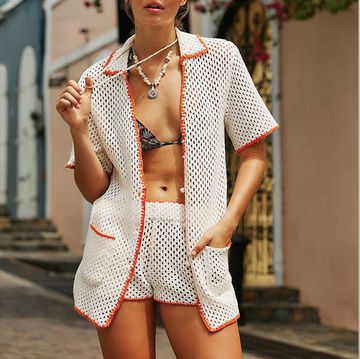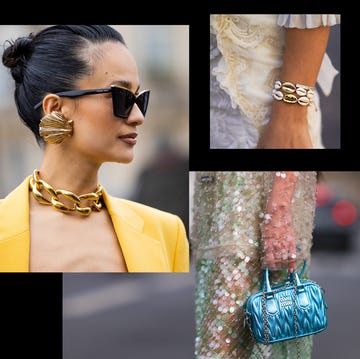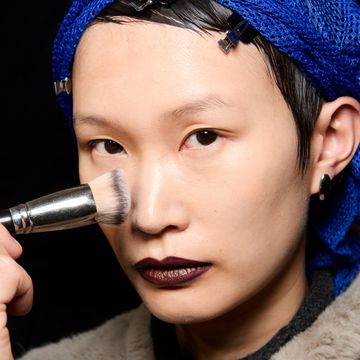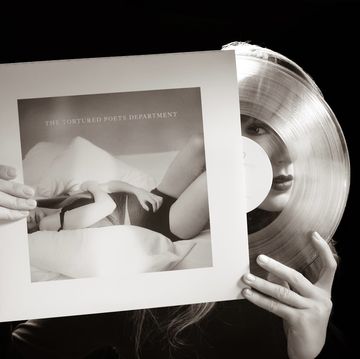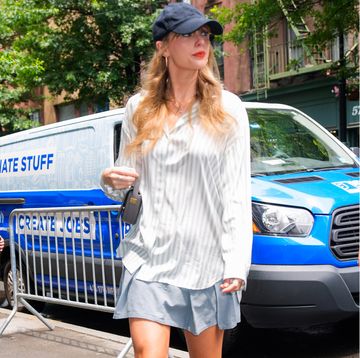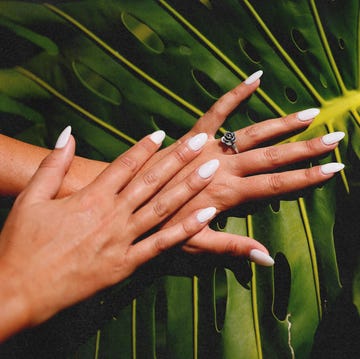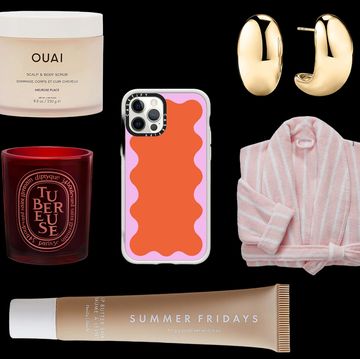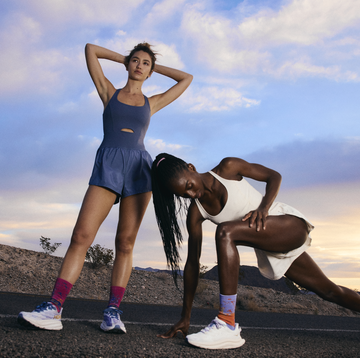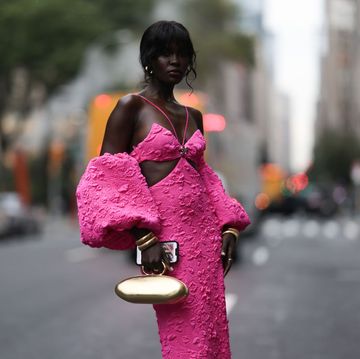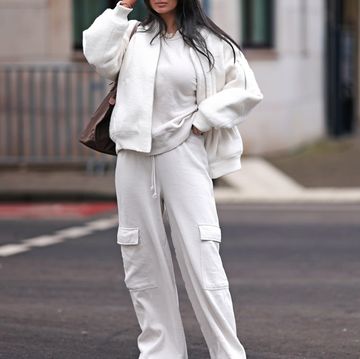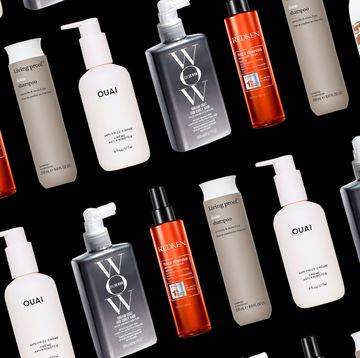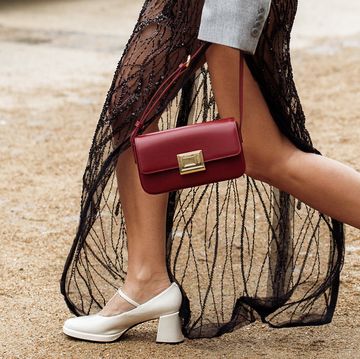She was scouted when she was a 14-year-old living in Nebraska and started modeling full-time when she turned 17. Since then, South Sudanese model Nykhor Paul says she has faced institutionalized discrimination from casting agents, designers, hair stylists, and makeup artists. She has never been shy about protesting the treatment, but it wasn't until this week, when the now 26-year-old posted to Instagram a condemnation of the racism she faces in the fashion industry, that a much wider audience heard her criticism.
"Dear white people in the fashion world!" she began. "Please don't take this the wrong way but it's time you people get your shit right when it comes to our complexion!" She continued by describing the industry's failure to be mindful of models with darker skin tones. "I'm tired of complaining about not getting book [sic] as a black model and I'm definitely super tired of apologizing for my blackness!!!!"
Her Instagram post has been liked more than 16,000 times and has been covered widely on the Internet. Cosmopolitan.com spoke by phone with Paul, who is currently in Paris working during Couture Fashion Week, about her experiences as a model.
When did you first encounter this issue with makeup artists not having the right makeup for your skin tone?
From the very beginning, and it was every show. I was so stressed about it once that I refused to walk. I looked gray as shit. So I said, "Forget this." I was having to use toilet paper to blend down the foundation and powder.
I would always have anxiety about the makeup in a show or on a shoot. It's the first thing that comes to my head: The makeup that the makeup artists bring won't match my skin tone.
Other black model friends told me that I had to bring my own makeup if I wanted to look right and feel more comfortable getting photographed. If I wasn't dealing with such an image-based job, it wouldn't matter, but the makeup and photos are the biggest parts. So I went and got my own powders, whatever I could afford. And after the makeup artist would do my makeup, I would go to the bathroom and redo it myself. Once, in Paris, there were five black girls in the bathroom all fixing their makeup. That's what we have to do.
Did you call the makeup artists out at that point? Or were you not as comfortable speaking out?
I'm a very vocal person. Right when it started happening, I was like, Wait — I didn't quit university for this bullshit, so that I could be belittled like this. One makeup artist said that I was an angry black girl. Others would say, "Does she think she's Naomi?" or, "What campaigns is she on? Who does she think she is, that she can talk like this?" You get this vibe that what you're saying is making people uncomfortable.
So what led you to your big post on Instagram this week? Did something happen?
A couple days ago, I was doing a show — I won't say which one — and I was getting my makeup done. The makeup people tried to match a bottle to my skin and it was clearly too light. Then they were like, "We don't have one for you." No foundation, no powder. They asked me, "Did you bring your own?" I haven't been bringing my own makeup since 2010. They said, "We don't work with a lot of people like you. Most black girls we work with bring their own makeup."
Somehow I'm still shocked when these things happen. Why do I have to deal with this for 10 years? To constantly be dealing with it wherever I go? We're here as a collective of artists: The designers make the clothes, the models show them off, the makeup artists match the makeup to the clothes. Why does my look have to be an afterthought when it's part of the whole thing?
What did you feel, apart from outrage, when you realized this was the deal?
I'm a pretty confident person, but you start to have this anxiety. I'm the only black girl at this show, and I know that the hair and makeup people will avoid me unless I raise my hand. I don't know if it's a subconscious fear, but you end up being the last one in hair and makeup if you don't ask. You see it in their faces. It's really a challenge. I know I'm black. I'm blue-black. It's like they don't care about that girl. She gets to be the ugly duckling every time. But it doesn't have to be like that if people make the effort. Look at the model photos on the board and get the makeup you need for those models. Go to Makeup For Ever. Go to MAC.
You said you haven't been bringing your own makeup to shows for a few years now. What changed?
I just refused to keep doing it. The thing is, no one is supplying me with this makeup. I have to go out and buy my own. It's expensive. I was like, Fuck it, I don't have time to buy makeup I cannot afford. I have family that's starving in a refugee camp.
You had other things to think about.
My country is in a civil war. I have so much serious shit to think about! Just get my makeup right so that I can get back to the other shit that I have to do. This is supposed to be my release. I'm getting to work and do what I love. I shouldn't have to beg people to accept me.
Has the industry gotten better since you started?
Now, when we go to some shows, there's one makeup artist who can do dark skin and the black models have to wait in line for that one person. These people go to school. They're artists, right? We shouldn't just have one person to go to when there are 20 makeup artists at a show.
A lot of makeup artists, I'll give it to them, are doing really great things. The industry has gotten so much better since I started modeling. There has been progress, but my makeup shouldn't be special. It's normal. If you can do a really pale-skin girl flawlessly, then you should come to the other side of the spectrum and do a super dark-skin girl too.
Have you thought about what happens now that your post is out there?
It was just one little post — I didn't think it would get to be this big. But I really hope to see a change. I feel like it's so unfair to exclude people. I feel like a freak because I'm the only black one. I'm the black dot. Everyone else mixes in and boom, here comes the one super-dark girl.
It also creates tension among the black models, since only one gets the job. It gets into your head. We're like dogs fighting for one small bone. If there were more of us modeling instead of just one or two a show, I'm sure things would change. When people say, "We don't book a lot of black girls," it means they're not exposed to us. People are living in caves in the first world. If fashion is art, then people really need to check themselves. If you're entering with prejudice, you need to evaluate yourself as an artist.
Let's hope it will change. We deserve to be a part of fashion. Fashion is so beautiful. Fashion with variety is more beautiful.
Follow Helin on Twitter and Instagram.

Helin Jung is a writer and editor based in Los Angeles. She was formerly the executive lifestyle editor of Cosmopolitan.com.


